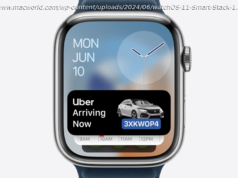Your guide to the latest and best Chromebooks of 2018. Check out our latest reviews and buyer’s guide on the top Chromebooks for this year.
Chromebooks are laptops but instead of running Windows, they come with Chrome OS from Google.
Microsoft now offers Windows 10 S, which is a Chrome OS rival. Currrently it’s found on the new Surface Laptop, though that laptop is very expensive, unlike most of the Chromebooks reviewed here.
Chrome OS offers pretty much the same experience as using the popular Chrome web browser, which you might well already use on a Windows PC or laptop, but with a few extra features added to the mix.
An internet connection is central to how a Chromebook functions. Nearly all its apps and services are online. There are a few exceptions to this, with Google’s own Document and Spreadsheet apps capable of working offline and then seamlessly synching any work you’ve done to the cloud once you’re back on Wi-Fi.
This simplicity allows Chromebooks to use less powerful hardware than many Windows laptops, without it affecting the overall performance.
Some do, and some don’t. Obviously you should buy a Chromebook that does run Android apps since this hugely broadens the number of available apps you can run. But as you’ll read in our Google Pixelbook review, there’s still some work to be done both by Google and app developers before Android apps feel integrated on a Chromebook.
Some apps aren’t optimised for bigger screens as they’re designed for phones, but this is a problem Android tablet users have had to put up with for years, so it’s nothing new on Chromebooks.
There are plenty of decent apps to get, though, such as Netflix which allows you to download videos and watch them offline. That’s something you couldn’t do on a Chromebook before Android apps were supported.
All of the models below will run Android app, but be very careful when you’re buying to ensure you are getting the right model. To help, these are the model numbers you need to look for:
You won’t find capacious hard drives, high-end processors or large 15.6in screens on most Chromebooks. Instead, Google offers 100GB of online storage with every machine, mobile processors are the order of the day (negating the need for noisy fans), and the usual screen size is around the 12 or 13 inches.
One of the most notable benefits of such modest accoutrements is that prices for Chromebooks tend to be below £300, with many selling for nearer £200. But some newer models are more expensive as they have touchscreens, more storage and other features.
There are many similarities across the majority of Chromebooks with a generally standard keyboard layout and screen resolution, and fast bootup times, but those with specific needs should still be able find a machine to suit them.
Chromebooks have come a long way since they launched. The range of screen sizes now spans 10-16in and not only are there certain models with touchscreens, but some have hinges that allow the screen to fold right back flat against the underside so you can use it like a tablet.
For most people who just want a laptop-style computer for browsing the internet, creating documents and spreadsheets, streaming videos or giving to the kids as an inexpensive, virus-free homework device, an inexpensive Chromebook is an excellent choice.
Really, though, Chromebooks are intended as a second device: you’ll still have a laptop or PC in the house, but the Chromebook is a portable, lightweight alternative which is great for web browsing, email and — now — running Android apps.
The Chromebooks in our chart are now starting to look rather old, but we assure you it is up to date: you can still buy every single model listed here.
We’re not saying that Chromebooks are a perfect solution, as there are still limitations you need to consider. The most significant is that, unlike Windows machines, Chromebooks can’t run some of the Windows software you might be used to. So, no iTunes (and therefore no iPhone compatibility).
For the alternatives to popular software, see Google’s ‘ Make the switch ‘ page.
Full versions of Microsoft Office won’t run on a Chromebook, although you can use the web-based suite and Android apps. Google’s own Docs suite is a very good alternative: its online collaboration is better than Microsoft’s offering for a start.
Peripheral support is also hit and miss, so if you need printers or other external devices to get your work done, then it’s worth investigating whether your printer and other gadgets will work with a Chromebook before you buy one.






